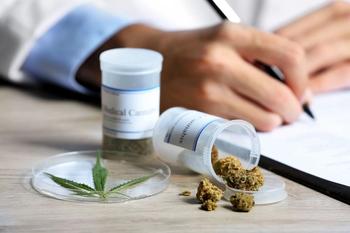
FDA Announces Need for New Regulatory Pathway for CBD
The agency’s conclusions are based on regulatory oversight needed to manage risks associated with CBD and other cannabis-derived products.
The US Food and Drug Administration (FDA) announced that a new regulatory pathway for cannabidiol (CBD) products is needed.
According to the statement—attributed to Janet Woodcock, MD, principal deputy commissioner for the FDA—careful review by an internal FDA working group concluded that the public’s desire for access to CBD products needs to be balanced with the regulatory oversight to help manage and prevent risks associated with use of CBD products.1
To this end, FDA is also denying 3 citizen petitions to allow CBD products to be marketed as dietary supplements. These findings are based on scientific literature, public information, and studies commissioned and conducted by the FDA, which identified various risks to both individuals and animals associated with the use of CBD and other cannabis-derived products.1
“The use of CBD raises various safety concerns, especially with long-term use,” Woodcock said in the statement. “Studies have shown the potential for harm to the liver, interactions with certain medications and possible harm to the male reproductive system. CBD exposure is also concerning when it comes to certain vulnerable populations such as children and those who are pregnant. A new regulatory pathway would benefit consumers by providing safeguards and oversight to manage and minimize risks related to CBD products.”
Woodcock, who also serves as chair of the working group, stated that the FDA is prepared to work with Congress in the development of a regulatory pathway for CBD products that helps minimize risks and protect the public.1 “The FDA will continue to take action against CBD and other cannabis-derived products to protect the public, in coordination with state regulatory partners, when appropriate,” Woodcock said in the statement. “We will remain diligent in monitoring the marketplace, identifying products that pose risks, and acting within our authorities.”
The issue is especially important for patients with psychiatric disorders. Although it has been suggested that cannabis may be helpful for anxiety, sleep, and depression, evidence remains limited, especially in terms of use in this patient population.2 John J. Miller, MD, Psychiatric TimesTM Editor in Chief, shared additional concerns and considerations during the most recent Annual Psychiatric TimesTM World CME Conference.3
Read the FDA’s full statement
References
1. FDA concludes that existing regulatory frameworks for foods and supplements are not appropriate for cannabidiol, will work with Congress on a new way forward. US Food and Drug Administration. News release. January 26, 2023. Accessed January 26, 2023.
2. Osser DN.
3. Miller JJ. Cannabis: separating the conversation on CBD and THC. Psychiatric Times. August 22, 2022.Accessed January 26, 2023.
Newsletter
Receive trusted psychiatric news, expert analysis, and clinical insights — subscribe today to support your practice and your patients.







